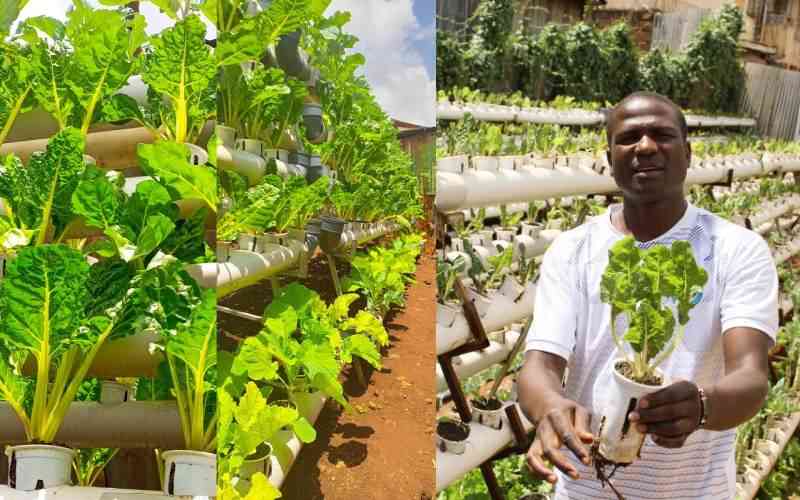
Is there anything good that can come out of Kibera? A lot. Walk with me. Our journey starts at Olympic Primary School, a public primary school deep in Kibera, Kibra constituency in Sarang'ombe ward. Kibera, is arguably the biggest slum or informal settlement in Africa, with a population of 250,000 people across an area of just 2.5 kilometres. Though a lot of good is happening in the bellies of Kibera, the common narrative is poverty, filth, violence and neglect. Delete that.
Welcome to Victor's Community Farm. Deep inside the slum, right behind Olympic Primary lies a lush urban farm that was once an annoying dumpsite and a health scare, but it now an urban farm feeding more than 250 families with fresh vegetables.